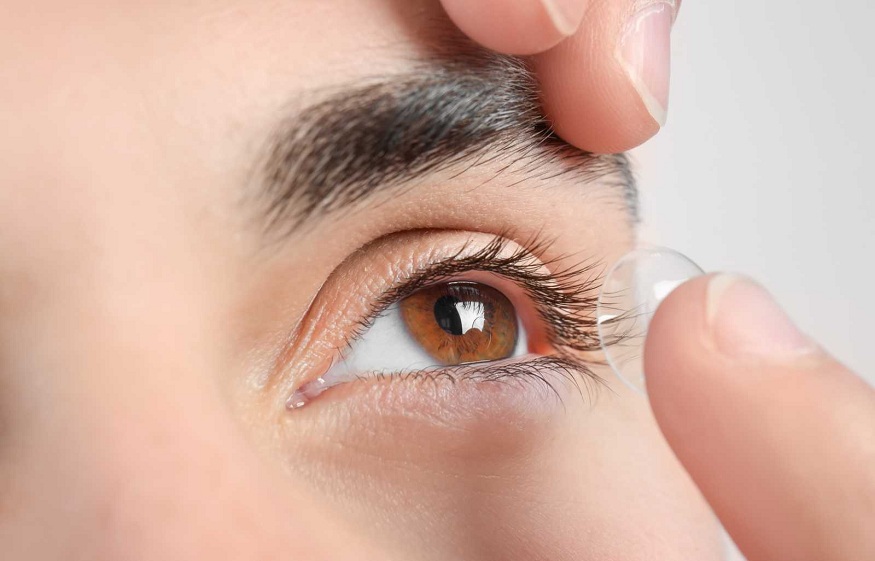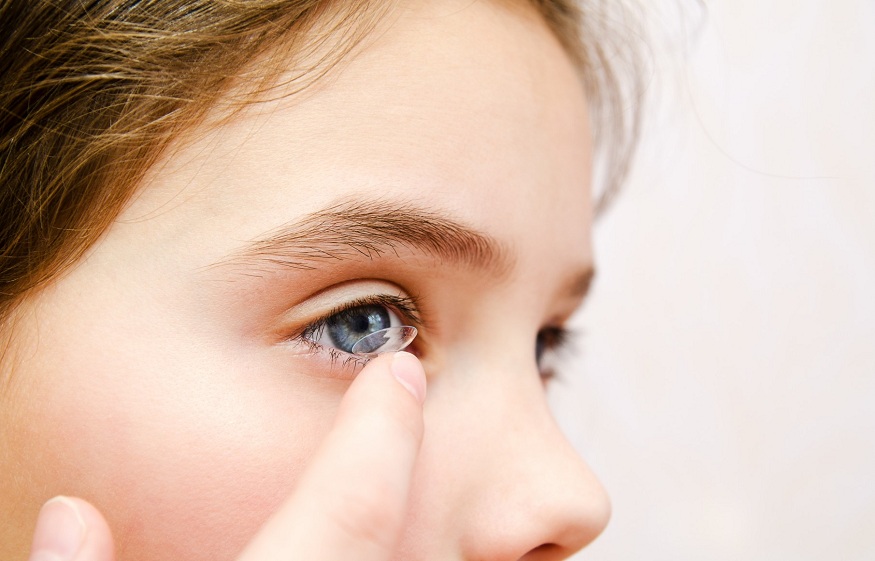Choosing between visible and invisible visual aids is not just a matter of style. Like glasses, contact lenses have their pros and cons.
Benefits of Contact Lenses
For many eyeglass wearers, the advantage of contact lenses is that they are invisible. When a person wears contact lenses, it cannot be seen, unlike glasses. Many people don’t think they look good in glasses, so they choose contact lenses purely for aesthetic reasons. But this is by no means the only advantage of contact lenses. These generally correct certain deficiencies better than glasses because they rest directly on the cornea. This is the case, for example, in case of strong curvature of the cornea or keratoconus. Also, contact lenses do not enlarge or reduce images as much as glasses. So you see everything in real size.
Contact lenses also offer benefits when it comes to wearing. With lenses, unlike glasses, the field of vision is not limited by a frame. No matter which direction you look in, the image will always remain sharp, which is certainly important for athletes, who always want to keep an overview, for example on the football field or on the tennis court. People with active lifestyles also find the lenses more comfortable, as they are less likely to get damaged or fall out. Unlike eyeglass lenses, they won’t fog up, smudge, smudge or smudge. And even if you find yourself in a downpour, your view remains unobstructed.In summer , you do not need corrective sunglasses. Generally, it’s not only cheaper, but also more convenient, because you don’t have to constantly change glasses.
Contact lenses also have disadvantages
We are used to putting on glasses, but putting on contact lenses takes a bit of practice. Many people who start wearing contact lenses find it difficult to put these little things in their eyes and take them out at night. And at first, they don’t find it pleasant. People who wear form-stable lenses sometimes need a few weeks to get used to them.
Contact lenses are in the eyes and glasses are in the nose. If you don’t handle them carefully, it can cause problems. Contact lenses should definitely be cleaned et disinfected with care. They therefore require more daily maintenance than glasses. Added to this is the cost of cleaning solutions. In addition, soft lenses need to be replaced regularly. If you pay close attention to hygiene, you will reduce the risk of eye infections. We also advise you to visit the optician regularly for control . Soft contact lens wearers should be checked every six months. For rigid lenses, one eye check-up per year is sufficient.
One of the disadvantages of contact lenses is that they can also cause or worsen dry eyes. People who wear contact lenses particularly quickly suffer from a problem of dryness due to heat or when staring at a screen for a long time. To combat this, eye drops or contact lenses made of other materials can help. With soft lenses, the eyes dry out faster than with rigid lenses. Soft lenses indeed affect the oxygen supply to the eye, as they completely cover the cornea. To keep your eyes healthy, it is imperative to follow the advice of the optician and not wear the lenses longer than the maximum wearing time . The afest lenses are form-stable contact lenses: they are much smaller and float on the cornea, so the tear film between the lens and the cornea is hardly affected.
Lens wearers also need glasses
Glasses or contact lenses: which is better? People who wear contact lenses cannot completely do without glasses. They need both. After all, it is better not to wear contact lenses in certain situations. With certain illnesses, colds or allergies, such as hay fever, the cornea can become irritated. The downside of contact lenses is that they can irritate the eyes even more. It is better to take a break from time to time so that the cornea can recover, especially if you wear soft lenses.
Contact lenses or glasses, hard or soft lenses? Each eye is different. Many disadvantages caused by contact lenses are easily overcome. Often, lenses made of a different material or another liquid for contact lenses can get results. It is essential to consult an optician or ophthalmologist if you want to start putting lenses in or if you have problems with them. This will allow us to carefully examine your eyes to find out which type of lens is best for you.



